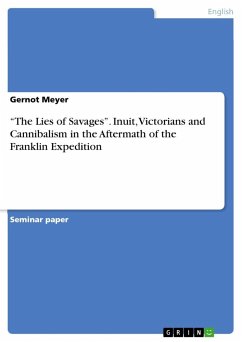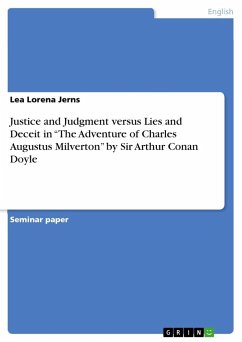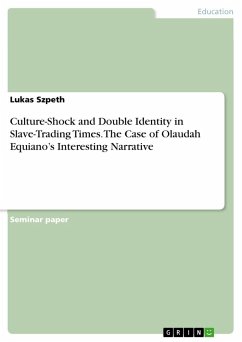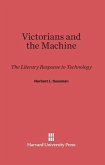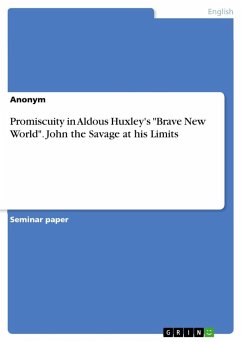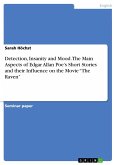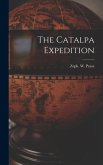Seminar paper from the year 2016 in the subject English Language and Literature Studies - Culture and Applied Geography, grade: 1,0, Bielefeld University (Fakultät für Linguistik und Literaturwissenschaft: Anglistik), course: Modulprüfung (Profilmodul 2 - British Studies), language: English, abstract: This paper is concerned with the aftermath of the both failed and famous Franklin expedition of 1845, more specifically, the reaction of the public and those closely involved in the search. One central point of offence in the aftermath were allegations of cannibalism, which were strongly denied by central public figures, such as Lady Jane Franklin, Franklin's (widowed) wife and Charles Dickens. Likewise, newspapers reporting on the events expressed doubts about the true nature of these claims which originated from the hearsay evidence of several Inuit tribesmen. These reports were later confirmed by later search expeditions and ultimately by forensic evidence in the late eighties. But that seamen and especially officers of the Royal Navy - including famous war hero and explorer John Franklin - had resorted to cannibalism, seemed unthinkable to the British. So the Victorians chose to ignore or deny the accusations. And even today it can be observed that the British media - unlike German media - omit information about cannibalism in articles regarding new findings of the expedition. The question is, why. Why did the accusations stir up Victorian society? And what role played the media in the aftermath? For its investigation, this essay first recapitulates the events of the Franklin expedition and the search, which have been covered in great detail by many authors of different backgrounds. The paper then focuses on the Victorian values and ideas of British people of the mid-19th century. Of central interest will be the Victorian idea of a "true Englishman" and how Sir John Franklin, the central figure of the expedition, was perceived by the public. What were heand other officers expected to do in dire circumstances and what certainly not? And what did the British think of non-English and non-white people such as the indigenous Inuit?Using the previously gained knowledge, Chapter 5 will then analyse newspaper articles to interpret to what degree the accusations were or were not taken seriously and what role British perception of the Inuit and cannibalism played in that regard. Of interest will also be if the media always was a willing participant in the battle for the image of the Englishman or if there were inconsistencies and to what degree media's argumentation may have been influenced by government policy.
Hinweis: Dieser Artikel kann nur an eine deutsche Lieferadresse ausgeliefert werden.
Hinweis: Dieser Artikel kann nur an eine deutsche Lieferadresse ausgeliefert werden.

